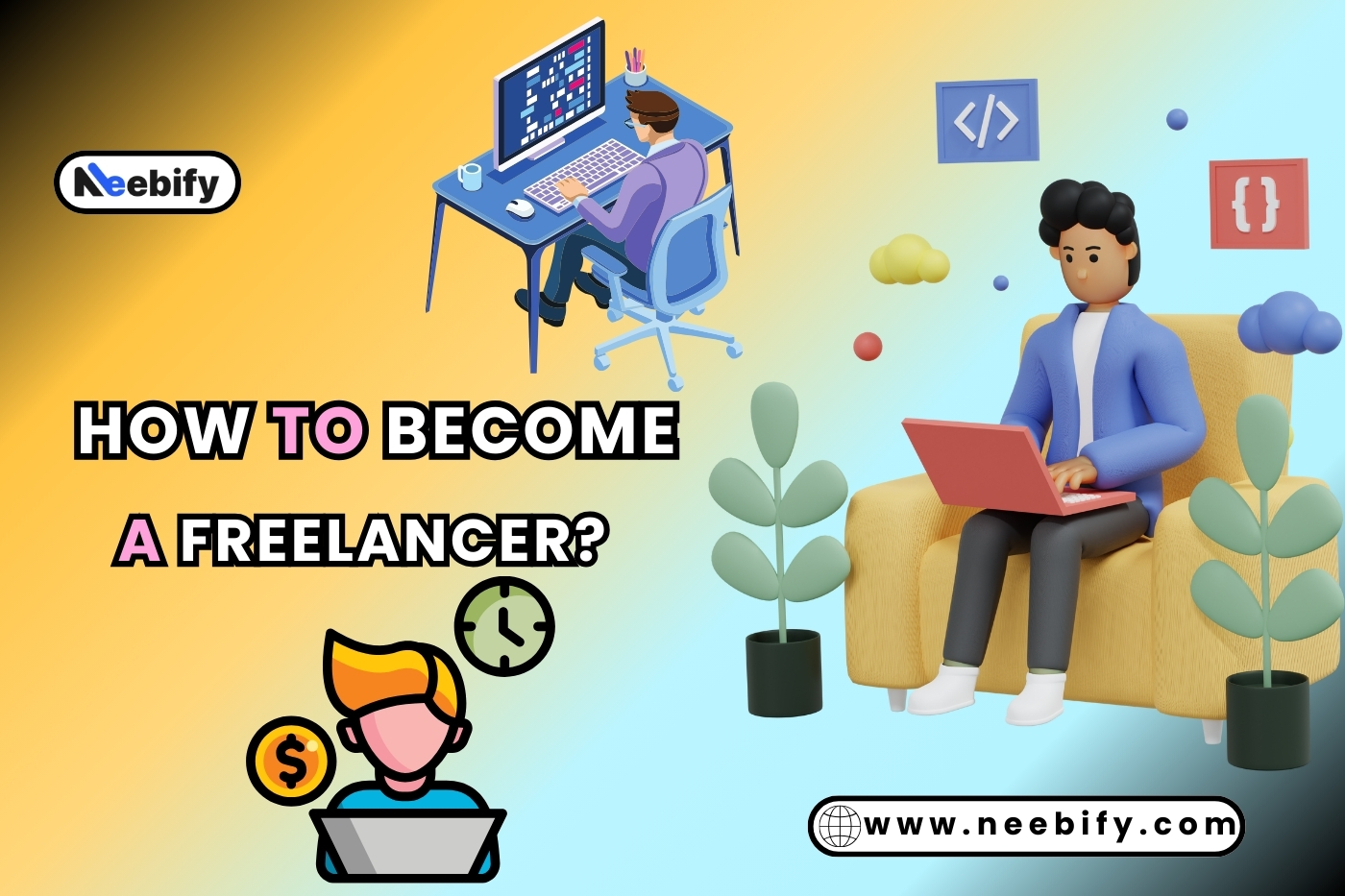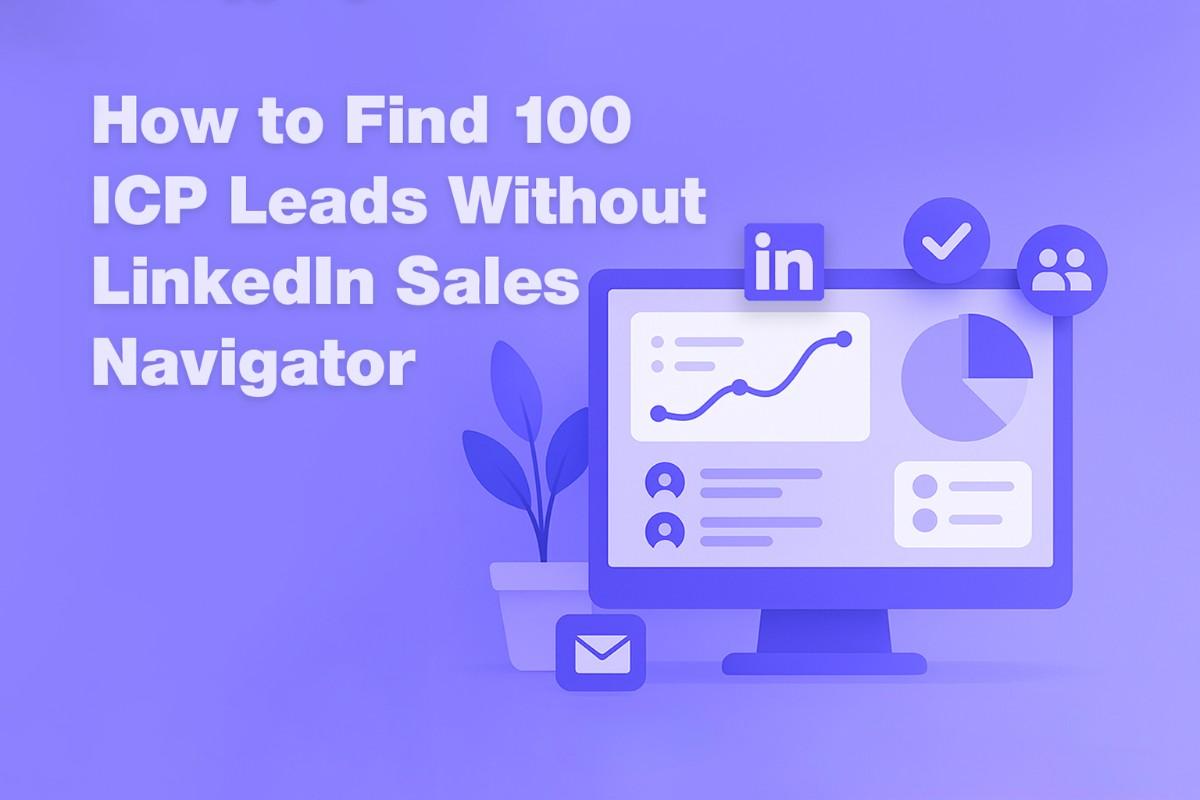Table of content
How to Become a Freelancer?
Freelancing has become one of the most popular ways to earn money nowadays. Its flexibility, independence, and infinite opportunities attract many people. But how do you go about getting started? Whether your intention is to work as a part-time freelancer or you are planning to start your full-time freelance career, this guide will outline how to start freelancing and walk you through the essential aspects of the freelancing world.
Here's how to become a freelancer:
1. Define Your Business Goals: Before diving into the world of freelancing, one must first set his business goals. Is he looking to freelance part-time whilst working full time, or is he aiming to be freelancing full-time? In any case, the goals he sets will dictate how he approaches freelancing. A set goal helps maintain the desire to do the task and to measure one's progress.
When you determine your goals, decide what would you like to accomplish in terms of income, client base, and time management. Do you want to grab freelance job opportunities so you can work at home, or are you seeking client projects to add to your portfolio?
2. Find a Perspective Niche: Find an area that suits your skills and passion. Freelancing for beginners can be very overwhelming, but giving yourself a niche will make you stand out from the crowd. Freelance business ideas can range from copy-writing, web design, or programming, to social media management, marketing, or graphic design.
Specializing in a niche area will make you an expert in that particular area and increase your attraction to your target clients. Determine your strengths and interests; this can guide you to a niche that centers with your expertise and passion.
3. Identify Your Target Clients: After your niche has been determined, you need to figure out your ideal clients. Are your prospects starting ups, small businesses, or bigger corporations? Understanding your target clients lets you tailor your services and freelance marketing strategies to suit them. Consider what type of business needs your provided service and make sure you can understand the pain areas those clients may have so you know how your skills could help them solve these problems.
In-demand skills in freelancing often depend on the industry. For instance, for the year 2024, there is a strong demand for tech-related freelancers such as developers, UX/UI designers, and digital marketers. Knowing your target audience will also help you in client outreach and pitching.
4. Freelance Rate Setting: There is a question that many freelancers face: how much to charge. The way to price your freelance services varies on your niche, specialty, and what clients want to pay for it. When you first start out, you may be tempted to lower your fees as a way to attract clients; but this undervalues your services.
A good strategy is to research freelancer job opportunities within your niche to understand what others are charging. You can also use online tools to determine competitive rates. Don't forget to account for taxes, business expenses, and time spent on non-billable work like administrative tasks. As you gain more experience and expertise, you can increase your rates to match your growing skill-set.
5. Create a Website: A professional website is an absolute must in this day and age for any freelancer. Your website will be your freelancer portfolio, and will allow potential clients to see your work, learn a bit more about you, and contact you easily. A website doesn't need to be complicated or expensive, but it has to clearly depict your services, portfolio, and some contact information.
A good design will increase your opportunities to get projects. Moreover, it will allow you to create freelance marketing strategies that can help drive traffic to your website, such as blogging or SEO optimization.
Finding Your First Client
Getting your first client is difficult but rewarding. There are several ways to find freelance clients:
1. Use freelance job platforms or websites: Websites such as Upwork, Fiverr, and Freelancer are good starting points to search for jobs.
2. Social media: LinkedIn and Twitter are highly effective in developing networking relationships and accessing clients.
3. Reach out to networks: Don't be afraid to contact friends, family, and acquaintances to offer services, or ask if they know of anyone who may require your services.
As a freelance career guide, our suggestion is to focus on smaller projects at the beginning to build your portfolio and seek clients' feedback. After completing your first few projects, you can use them as leverage to get larger clients.
4. Learn To Pitch via Email: One of the best ways to get clients is with highly personalized pitches in the email. Freelancing tips of productivity suggest writing short, well-written proposals that highlight the problems a client faces and how your skills can solve them. In the proposal, you should include your portfolio, relevant experience, and why you fit best for the job.
You should ensure that the subject line gets attention and that your e-mail is professional but at the same time personable. Tailor every pitch for an individual client instead of just sending generic proposals. This boosts chances of getting a response.
5. Browse Freelance Job Platforms or Websites: Find consistent work using the top freelance websites. Here are a few top platforms connecting freelancers with clients from across the globe. Upwork, Fiverr, and Toptal all have different rules, fees, and opportunities; so, it is key to look for the one that best suits your skills and business model.
In addition to the above, you may also find niche job boards that are dedicated specifically to your industry. Freelance programming jobs can be found on GitHub Jobs, and design freelancers may want to explore platforms such as Behance.
6. Expand Your Network: Networking is the heart of any freelance business. Developing relations with other freelancers, clients, and industry professionals can lead to valuable referrals and new opportunities. Attend industry events, participate in online forums, and engage on social media platforms like LinkedIn to expand your network.
Networking is as much about finding clients, but equally so, it's about learning from the other guys in the field. A healthy network you cultivate will give you support, advice, and even collaboration opportunities as you expand your freelance business.
7. Balance Your Full-Time Job with Your Part-Time Freelancing Side Gigs: If you’re still working full-time, it’s important to manage your time effectively. Balancing a full-time job with freelancing can be tough, but it’s possible with the right strategies. Start small and set aside specific hours each week to work on your freelance projects.
Set realistic goals and deadlines. Freelance work-life balance is a must to avoid burnout. This means that once you have established yourself, you can start to consider a transition to full-time freelancing.
Freelancing Without Experience: How to Get Started?
It's normal to say how to start freelancing without experience. The most important thing is to start working on the portfolio and real-world experience. Offer services at a discounted price or even for free, in order to build your portfolio. Try to work with non-profit organizations or offer tasks for friends or relatives. You will thus gain some experience, but also get testimonials that can be used to attract future clients.
1. Pick What You Enjoyed Doing: Passion has become the decisive factor in the long-term maintenance of the freelance career. Whether it is writing, web design, or marketing, pick a niche that you are passionate about. Freelancing tips for newbies always highlight the fact that one should work on an area that he enjoys—it will keep him motivated and deliver quality work to the client.
2. Consider Some Best Second Jobs You Can Take on Without Experience: If you're looking to freelance part-time, consider roles that do not necessarily require much experience to start. Among those are virtual assistance, data entry, and social media management, among others. Once you become more confident and gain experience, you can take on more specialized and more lucrative freelance jobs.
3. Don't Work for Exposure: While tempting, try not to fall into low-paying projects in exchange for exposure. How to start freelancing should focus on how to have a sustainable income. Negotiate fair rates from the get-go, even when you just started.
4. Develop Your Freelance Skills: Consistently improve your skills as a freelancer. Take various courses, attend workshops, and read industry blogs to be up to date with the current trend. This way, you are always competitive, and your services can always be valuable for your clients.
5. Additional Skills: In parallel with your main freelancing skills, it is always good to know other skills that support your work. For instance, a web designer may be beneficially trained in SEO, and the writer may be improved in content strategy. A wide range of skills will make you more versatile and marketable.
How to Start Freelancing in a Particular Niche?
When setting out freelancing in a specific niche, the key is to concentrate on perfecting that niche. Create a portfolio focused specifically on a niche and market toward that niche. Specializing can command higher prices and bring better leads.
How to Freelance Programming?
Freelance programming is perhaps the most lucrative niche in freelancing these days. So, from the very beginning focus on learning in-demand programming languages such as Python, JavaScript, or Ruby. Join developer communities, start to contribute to open-source projects, and share your skills on platforms like GitHub.
Freelance and Keep Your Time 10-to-6 with Neebify
Platforms such as Neebify enable freelancers to manage their time properly. With work that can fit into a 10-to-6 schedule, you will have your tasks in order and be able to keep it within those hours, creating a healthy work-life balance and preventing burnout.
Conclusion
Starting a freelance business can be both exciting and challenging. By following the steps outlined in this guide, you’ll be well on your way to establishing a successful freelancing career. Whether you’re just starting or looking to refine your existing business, always remember that consistency, professionalism, and a passion for your work are key to success.
Get your next meeting in a
matter of minutes.
Free Trial
Latest
The Ultimate LinkedIn Outreach Playbook 2025
A practical, modern guide to mastering LinkedIn outreach in 2025 — learn how to boost reply rates, p
12/1/2025How to Find 100 ICP Leads Without LinkedIn Sales Navigator
Generating 100 targeted ICP leads doesn’t require LinkedIn Sales Navigator. Learn how to leverage fr
11/28/2025


